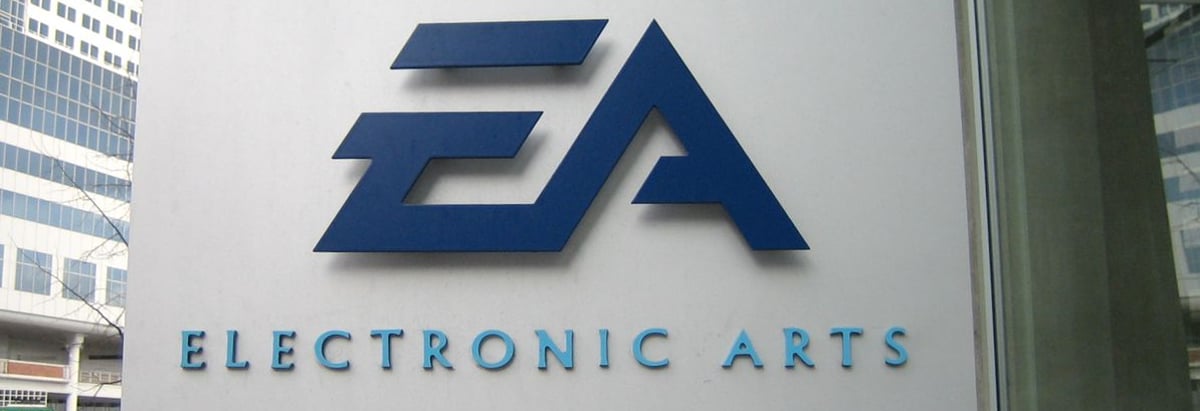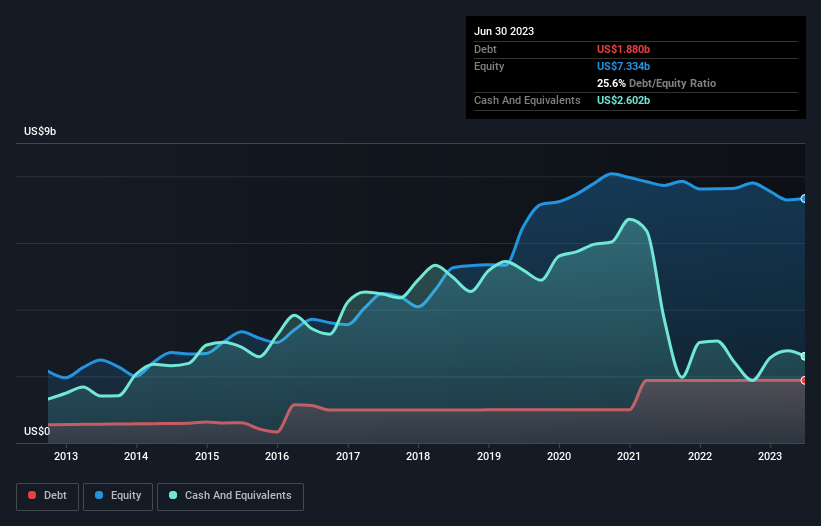- United States
- /
- Entertainment
- /
- NasdaqGS:EA
We Think Electronic Arts (NASDAQ:EA) Can Manage Its Debt With Ease

Some say volatility, rather than debt, is the best way to think about risk as an investor, but Warren Buffett famously said that 'Volatility is far from synonymous with risk.' So it seems the smart money knows that debt - which is usually involved in bankruptcies - is a very important factor, when you assess how risky a company is. As with many other companies Electronic Arts Inc. (NASDAQ:EA) makes use of debt. But should shareholders be worried about its use of debt?
When Is Debt Dangerous?
Debt assists a business until the business has trouble paying it off, either with new capital or with free cash flow. If things get really bad, the lenders can take control of the business. However, a more frequent (but still costly) occurrence is where a company must issue shares at bargain-basement prices, permanently diluting shareholders, just to shore up its balance sheet. Of course, the upside of debt is that it often represents cheap capital, especially when it replaces dilution in a company with the ability to reinvest at high rates of return. When we examine debt levels, we first consider both cash and debt levels, together.
Check out our latest analysis for Electronic Arts
What Is Electronic Arts's Debt?
As you can see below, Electronic Arts had US$1.88b of debt, at June 2023, which is about the same as the year before. You can click the chart for greater detail. However, it does have US$2.60b in cash offsetting this, leading to net cash of US$722.0m.

How Healthy Is Electronic Arts' Balance Sheet?
Zooming in on the latest balance sheet data, we can see that Electronic Arts had liabilities of US$2.80b due within 12 months and liabilities of US$2.95b due beyond that. On the other hand, it had cash of US$2.60b and US$517.0m worth of receivables due within a year. So its liabilities total US$2.63b more than the combination of its cash and short-term receivables.
Given Electronic Arts has a humongous market capitalization of US$33.0b, it's hard to believe these liabilities pose much threat. Having said that, it's clear that we should continue to monitor its balance sheet, lest it change for the worse. Despite its noteworthy liabilities, Electronic Arts boasts net cash, so it's fair to say it does not have a heavy debt load!
Another good sign is that Electronic Arts has been able to increase its EBIT by 24% in twelve months, making it easier to pay down debt. When analysing debt levels, the balance sheet is the obvious place to start. But it is future earnings, more than anything, that will determine Electronic Arts's ability to maintain a healthy balance sheet going forward. So if you want to see what the professionals think, you might find this free report on analyst profit forecasts to be interesting.
Finally, a company can only pay off debt with cold hard cash, not accounting profits. While Electronic Arts has net cash on its balance sheet, it's still worth taking a look at its ability to convert earnings before interest and tax (EBIT) to free cash flow, to help us understand how quickly it is building (or eroding) that cash balance. Over the last three years, Electronic Arts actually produced more free cash flow than EBIT. There's nothing better than incoming cash when it comes to staying in your lenders' good graces.
Summing Up
While it is always sensible to look at a company's total liabilities, it is very reassuring that Electronic Arts has US$722.0m in net cash. The cherry on top was that in converted 128% of that EBIT to free cash flow, bringing in US$1.8b. So is Electronic Arts's debt a risk? It doesn't seem so to us. We'd be very excited to see if Electronic Arts insiders have been snapping up shares. If you are too, then click on this link right now to take a (free) peek at our list of reported insider transactions.
When all is said and done, sometimes its easier to focus on companies that don't even need debt. Readers can access a list of growth stocks with zero net debt 100% free, right now.
Valuation is complex, but we're here to simplify it.
Discover if Electronic Arts might be undervalued or overvalued with our detailed analysis, featuring fair value estimates, potential risks, dividends, insider trades, and its financial condition.
Access Free AnalysisHave feedback on this article? Concerned about the content? Get in touch with us directly. Alternatively, email editorial-team (at) simplywallst.com.
This article by Simply Wall St is general in nature. We provide commentary based on historical data and analyst forecasts only using an unbiased methodology and our articles are not intended to be financial advice. It does not constitute a recommendation to buy or sell any stock, and does not take account of your objectives, or your financial situation. We aim to bring you long-term focused analysis driven by fundamental data. Note that our analysis may not factor in the latest price-sensitive company announcements or qualitative material. Simply Wall St has no position in any stocks mentioned.
About NasdaqGS:EA
Electronic Arts
Develops, markets, publishes, and delivers games, content, and services for game consoles, PCs, mobile phones, and tablets worldwide.
Excellent balance sheet and slightly overvalued.
Similar Companies
Market Insights
Community Narratives



